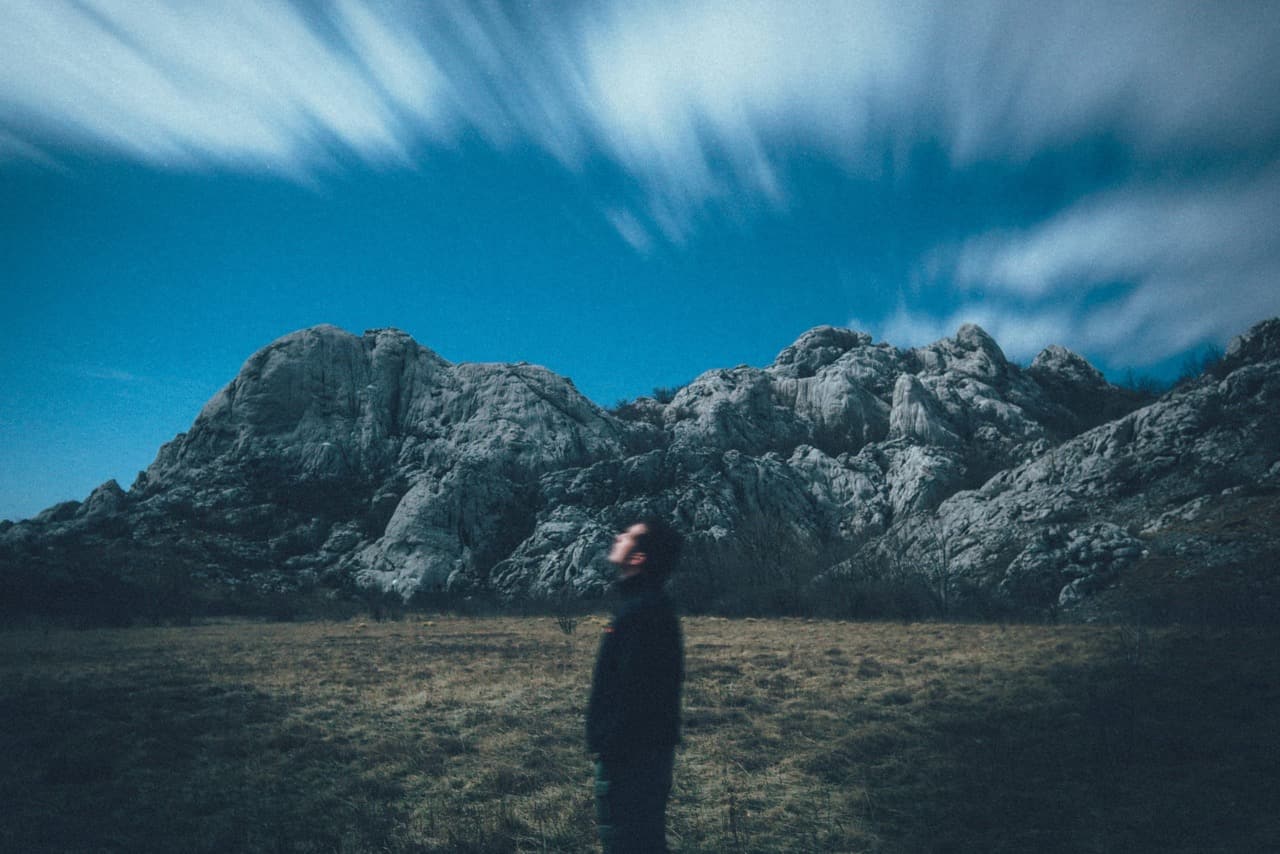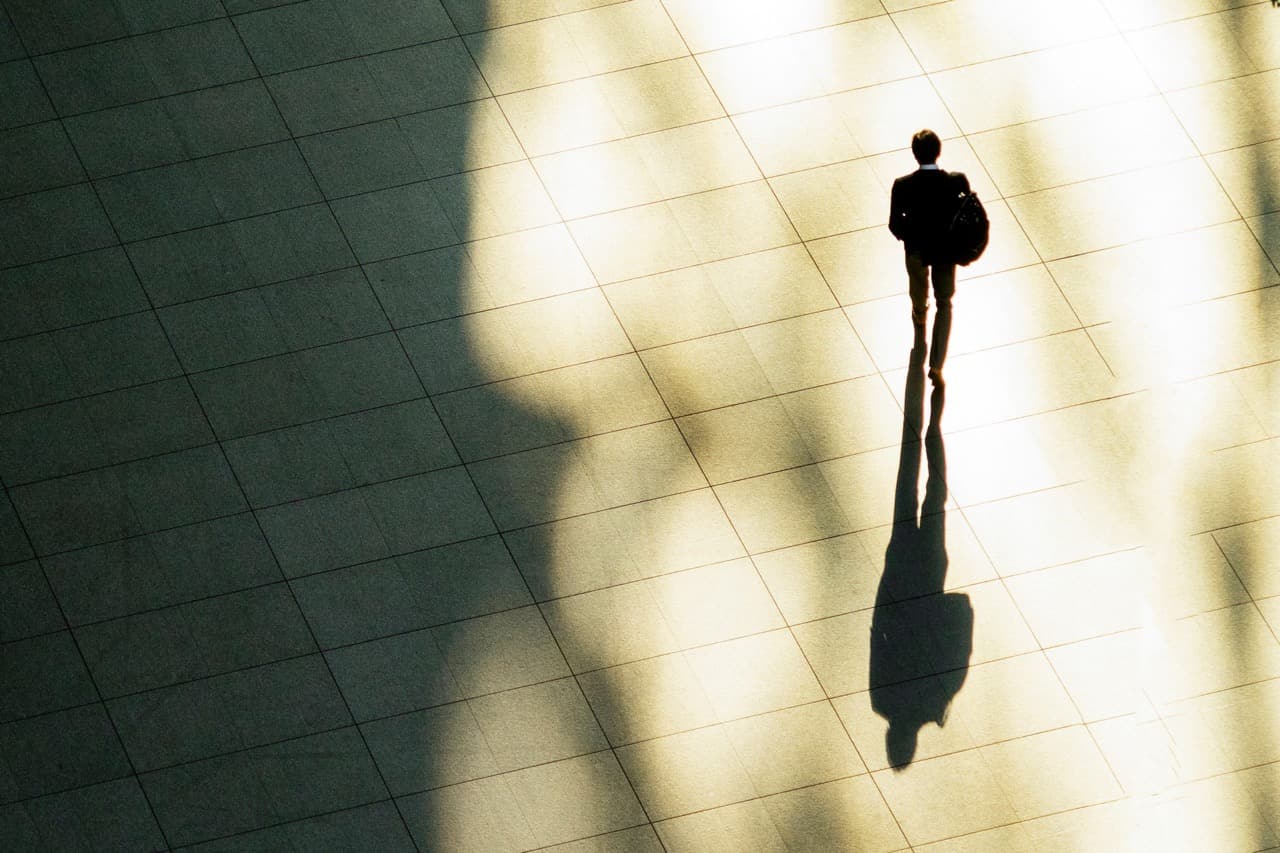Q: For many years, the wonderful world of martech could have been accused of an individualistic approach to business, but there seems to have been a huge shift in recent years showing just how powerful collaboration can be. Social and industry factors have created seismic change over the past 12 months. Do you believe we should be channeling more collaborations as we step into these somewhat new waters?
A: I think the answer to that is an absolute yes. The connective tissue between both human beings and technology work together to solve the challenges that we face every single day in business, whether it’s building a strategy, considering what our tech stack needs to look like or whether it’s how we tackle the incredible growth of eCommerce. We’ve come from a very competitive world and although I’m not lacking in competitiveness myself, I think what we’re finding out is we are a bit like a jigsaw puzzle – we need to fit together to make sense of everything. And, we are slowly realising that we are part of a much bigger ecosystem, both in business, and psychologically.
I do truly believe collaboration is everything, we just need to lower our egos enough to allow for collaboration and to believe that there are others that have experiences and input outside of our own arenas who can only enhance what we live and breathe each day. If we partner together, we will create a much greater and faster exploration into the future.
Q: We all witnessed the incredible and somewhat overdue Black Lives Matter movement last May, which swept across the globe. There’s got to be a lesson learned here about the power of collective thinking and a collective voice. What lessons do you think we as an industry can take from these movements, especially when it comes to making change?
A: There was an avalanche of change needed around these various movements; Black Lives Matter, Me Too, and others that many of us will be familiar with, have all impacted us over recent years. In fact, here at MediaLink, we have just undertaken a piece of research called The Revelation Report. What we saw from our results was a rise in unofficial unionisation, if you like – the collective voice saying, “actually something has to change and it’s coming from the grassroots up.”
It is imperative to have leaders who are willing to stand behind something and ensure that everybody is on board, aware, and conscious. Businesses need to lean into even the smallest voices, who in the olden days would have been regarded as un-valuable, if I dare say that out loud. And I think all of us are having to come to terms with how we work through that, around that, and with that.
If I’m being really bold, I think there is a little bit of fatigue around businesses who have the pressure on to announce, release and discuss external initiatives that support diversity, equality and inclusion. The trouble is, after initial announcement, in three months’ time the news is forgotten about. This is where you really start to see the cracks, and those who use it as a tick-box exercise versus those who are actually prepared to put a point of margin behind funding, will start to crumble. And from my very lucky vantage point at MediaLink, where I have a bird’s eye view of the data technology and marketing and media spaces, I can see those businesses that are really serious about it and those that are not.
But I think also, as the individual, no matter what market we work in, we have a duty of care to each other. So we have to decide for ourselves, where do I stand in this? What impact can I make? What change is required of me? We know human beings find change scary at the time; changing habits or changing beliefs is actually very, very difficult. So we have to accept that it takes time. We need to be able to ask open questions, to educate ourselves, to really be able to make a meaningful change, rather than just stating initiatives, just to quieten the crowd. I’m not a fan of that. And I think we have to be braver and being honest about what we are prepared to do.
Q: Interesting you say, businesses have created this fanfare and noise about making these changes, but I think a lot of people see through that and see a tick-box exercise of jumping on the “Me Too” movement or “Black Lives Matter” because it’s good for the brand.
A: Absolutely. I have an example for you. I was hiring a CEO for a business a few months ago, and within the job description they’d dutifully written a whole paragraph about diversity and the importance of that in every measure. But when you dig deeper, and when we explored the outer layer of where that CEO had come from, it became evident that the rest of the board had virtually no diversity in it at all. Now, I know we have to start somewhere, but it’s a bit hard to swallow when we read about policies and initiatives surrounding D&I, and your entire board does not reflect that. Now is a time to call out those who need to put action against these words.
And the change needs to happen across a huge variety of factors; whether it’s sustainability, mental health, faith and our native colour, or where we have come from in the world. I come from a very poor part of England that has some socioeconomic badging, and I remember very early on in my career feeling too ashamed to even admit where I came from. It comes in all sorts of different shapes and sizes, and it is time we really understood how it feels to feel excluded. And equally the wonder of feeling included and being an inclusive society. We are getting there more so than I’ve ever felt in my lifetime and I’m nearly 50, but we have a lot of work to do. This goes back to the collaboration piece: we need to do this together.
Q: On the subject of collective voices for change, we are starting to see this topic crop up at many events, which is fantastic to see, but we have a long way to go. As a leader, how do you think your voice can help make a change here? And what advice would you give to other leaders?
A: This is all about honesty as much as humility. Just because we are leaders, doesn’t mean we don’t have emotion, experiences, stories. We’ve seen certain leaders, a really good example would be someone like Josh Krichefski at MediaCom, who speaks very honestly about his own mental health, his own challenges with health in general and his family. When I see individuals that are willing to just give you a little bit of an insight into reality it makes such a powerful difference.
A piece of research we conducted many years ago around mental health, explored this further. When we extracted the data and insights from the leaders who partook in the research, we discovered a common theme: “I am absolutely fine, but I know that the worker bees all need some help and support.” But, that wasn’t true. Everybody – leaders included – at some point had some level of challenge and difficulty. But we’re so used to living in this archaic world where the higher up we are within an organisation, the more robotic we become. I guarantee that when an individual says “I too have struggled”, others will follow and not feel so alone.
My view is that in leadership, alongside your company-wide policies and culture, need to be willing to bring your own personal experiences to the table, which might help people understand that it’s okay for to not be ok at times. Especially now, after nearly two-years of restrictions, loneliness and being apart from each other for so long, it’s more important than ever that we connect to each other on a much deeper level. I don’t think I have spoken to anyone lately who isn’t fatigued. And that is not a good state to be in.
Q: Having leaders who are vulnerable, it makes them better leaders as you just relate to them more and it creates this respect. I really appreciate seeing people who are like that.
A: I agree. I think it’s respect, but also trust. I think you really trust someone who is willing to show themselves. Over the last decade, everybody’s talked about authentic leadership, and yes that all sounded fabulous, but there’s a real sense of “how authentic are you really being”? We are far wiser as a society now and we have great instinct and great intuition around people, and we need to utilize that.
Q: On this very subject, remote working and the now normal daily Zooms have made it effortlessly easy to connect with our colleagues and peers. While we’ve never been more connected than ever, we’re arguably less connected on a human level. As an executive leader, what would your advice be to others when it comes to the duty of care to your teams and members of staff?
A: I have a very strong opinion on this. I don’t think we’re ever going to go back to the way it was before, and neither should we. However, I also think there are some things that have happened that have been very challenging for us as individuals.
In the past I worked with a wonderful guy, who’s Head of Neurology at Imperial, and he said to me, as a brain surgeon, no matter what you might do surgically for the brain, there is nothing as healing as the human touch. And the fact that we haven’t been able to touch nor be connected in a physical sense for so long now, has been a real detriment to us as a society. There is a general melancholy at the moment with the individuals that I’m working with, and so it’s time to make changes where we can.
The remote working aspect has certainly had a real mix of pros and cons. One of the studies that’s been done on the brain around Zoom and working in this remote world, is directly correlated with why we feel so tired at the end of the day. Think about it for a second, when you see someone’s face close up on your computer screen, it’s quite intense. If you’re in a meeting room, there’s probably a bit more distance, and there may be other people in the room who you can interact with while you’re speaking. But on Zoom, we’re very much fixated on the face that we are looking at.
And for the brain, it translates this closeness to being very intense. And if you extrapolate that further, it thinks one of two things in the reptilian brain; first it believes we are about to have conflict, or we are about to have a relationship in some form. So therefore, that’s quite an intense situation for the brain to think it’s in, on a daily basis. You can imagine the physical, hormonal and chemical energy that’s taken up in our bodies when our brain is firing and triggering in that way.
So, despite the great flexibility remote working has offered to many of us, we have exhausted ourselves, both mentally and physically. I’ve also noticed when businesses share calendars so everyone can see availability etc., it can have a negative impact whereby team members feel guilty if they had an hour free at any given point. That is a ridiculous place to be because where do we have time to think? Where do we have time to strategise and be creative? And where do we have time to do the work, we were talking about in the meeting we just had? It’s about finding a new balance in the future – one that likely combines remote flexibility but encourages people back into the workplace.
Q: In your experience having sat on many boards and co-founding Psyched, have you seen a change in behaviour over the past few years regarding more of an acceptance when it comes to self-care, not just personally, but in a professional capacity?
A: I absolutely have, and it comes in different dimensions. As we’ve discussed, seeing each other at home, has allowed us to understand there’s a whole human being behind our colleagues, helping us to have some level of empathy. And I think we need a lot of empathy right now to understand what’s going on for others around us. We see a very high-performing individual in front of us and often we don’t think about what happens when the Zoom gets switched off.
However, we now need to channel that empathy into support and how we protect each other in this next phase of the “new normal”. What I mean by that is, thinking about circumstances with open minds and with an equal level of care.
For example, if somebody breaks a leg, we have a basic level of understanding why that person would need time off to recover, and the level of empathy is quite limited in the long term. Yet, if someone’s had a bereavement or a mental health challenge, a new type of sympathy is displayed, that perhaps lingers on a little longer. It’s a little bit hierarchical in the way it’s delivered, and often non-intentional, but this traditional approach could be damaging in the new future.
What we are living through now is unique because nobody has been untouched by what’s happened. As teams and individuals, we are able to realize that we have good days and bad days, but ultimately, we all recover. But in our own time. I am hopeful that this whole joint experience will bring us together a little more in that sense, and will enable us to have more patience for each other in times of difficulty.
Q: On this subject, businesses are flooding back to the offices, and it raises the question on how we perfect that work-life balance. Do you think we’ll ever go back to the Monday to Friday nine-to-five rules or do you see a future of flexible working?
A: So, my absolute answer on that is no. I cannot imagine that we’ll ever go back to nine-to-five working and neither do I think that is what we should do. If the pandemic has taught us anything, it is that we all work in different ways and thrive at different times of the day depending on our roles. In essence, we can do the work whenever we need to, so long as the work gets done.
I have noticed some very interesting behavioural and conversational patterns coming through however – and a lot of this will be detailed out in our latest research.
Those of you who have studied any level of psychology will know one of the very obvious methods used, called Transactional Analysis. Transaction Analysis, is all about the personas around adults, parents, children, and how we each pertain a different ego at every stage. It happens every single day without many of us knowing. We will oscillate between these ego states across 24 hours, depending on what kind of scenarios we’re put in. Let’s look at an example, if somebody pushes in front of us in the sandwich shop, suddenly we go into parental state of “how dare you”. Whereas if somebody dismisses our feelings about a project we’re working on, we might go into child mode.
What I’ve seen surrounding this notion of heading back into the office is how we’re all oscillating. I won’t give too much of the game away – hint, read our research!! But you’ll notice that the Google employees, Amazon employees, etc., have all written letters to the bosses to say, “you can’t make us come back in the way it was before”.
We are seeing some breakdown behaviours going on right now in how we’re going to communicate coming back to the office. Lots of organisations are very nervous about putting their policy out to individuals, and a lot of individuals are taking a very strong stance about how they feel about it. The answer of course, is channel your adult mode. Let’s talk about what you need, what we need to do, but also understand we are running a business and we can’t lose sight of that either. We need to step into our old roles again, but with a fresh way of thinking; leaders have to be comfortable at some level about being able to lead again and direct their global teams back to some kind of structure. But there’s a huge amount of nervousness taking place right now.
Q: In a similar vein is virtual events. It’s been incredible to see how quickly we, as an industry have adapted to lockdown. And virtual events were implemented at the speed of light and the rise of webinars placed events into our own living rooms. But as we’ve said before, there is a Zoom fatigue taking place right now. And the yearning to head back to a physical world is evident. Over the next 12 to 24 months, do you think we will revert back to our old ways? So do you think the virtual event will still hold value in certain cases?
A: It’s a great question and one we get asked a lot. My business owns Cannes Lions, and we’re heavily involved in CES, whilst running own big events at MediaLink. People want to feel the audience. They want to network. They want to be with people. But, they also want the choice.
That said, many don’t necessarily want to give up two-four days of their working week. They might want to go to some sessions in person and then maybe others online. So, the hybrid model will work wonders. We recently ran an event on the 9th of September, and we had circa 350 people in attendance. When the invite went out, I’ve never seen a take-up so fast in my life. And it paid off! It was so wonderful to be back together again, and that’s what this industry is all about – networking, learning from each other, inspiring each other. But, the ease of some events being hybrid, will open so much global scale that perhaps was missing before.
Q: You have such an impressive CV and you seem to be wearing many hats. What do you think is key for success in your role?
A: I love what I do and I do what I love. And that’s important. I’ve always been my own person. I’ve never dressed fashionably. I’ve never followed the crowd. I’ve never done the popular thing. I’ve done what I thought was the right thing for me.
My father who passed during COVID had a wonderful saying “Don’t be a Coca-Cola bottle.” And for the record, I love Coca-Cola (full-fat, of course). But he used to say “There are millions of billions of Coca-Cola bottles in the world and they all look the same. Don’t be tempted to be that. Be your own flavour.”
Whether it was not going to university and getting a job instead, or breaking away and setting up my own firm at the beginning of the last recession in 2009. I have absolutely loved every single journey. I studied to be a psychotherapist when I was 35 years old, and although it felt so late in life to study again, I followed what I really wanted to do. And I think when you do what you love, it doesn’t feel like work.
But stepping outside of personal achievements, one key piece of advice I would give to anyone is ‘time management’. My diary, like many, is often wall-to-wall and can be a logistical nightmare sometimes to take a break, as we stated earlier, to digest from one meeting to the next. I rely on my incredible supporting staff, who manage me and make sure I’m in the right rooms at the right time, in the right places with the right papers. And I really couldn’t do it without them. It’s the people that support you and cheerlead you alongside solid time management that is the key. If you really want to get something done, you will find the time and the means to do it. Just follow your heart.











